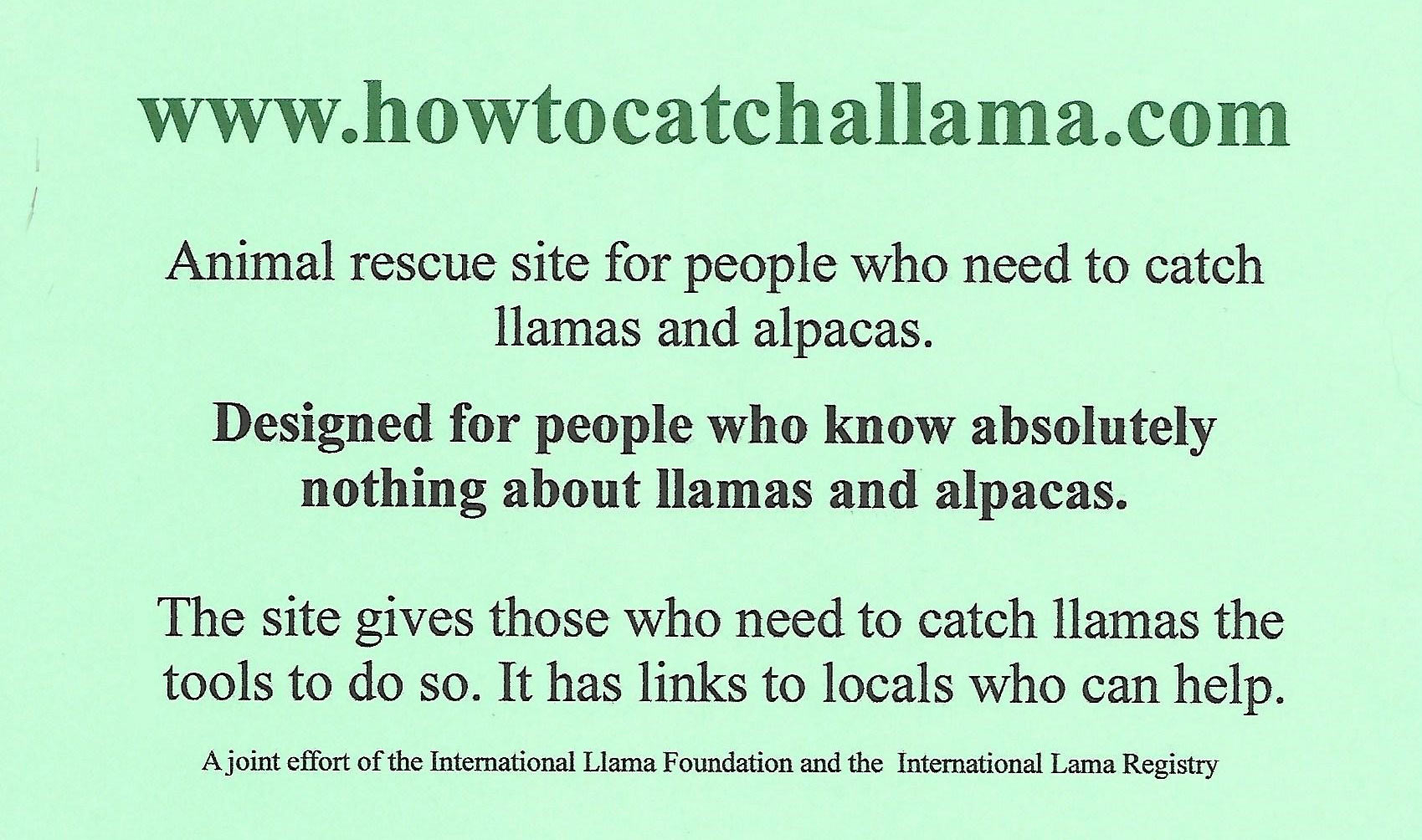How to Catch a Llama

New Website for Animal Control Personnel

The ILR Board of Directors is pleased to announce the creation of a website aimed at helping people catch or rescue llamas and alpacas. Sponsored by the ILR and funded by the ILF it will be most helpful to those with no knowledge of camilids.
Frequently police or animal control agencies are called upon to rescue abandoned llamas or catch alpacas that have gotten loose. The site will give basic information as well as lists of people and organizations that can help.
Using photographs and short articles, the format is easy to use. It gives quick access to basic health requirements and commonsense tips on control. Check the site out at the following addresses:
Help us spread the word about this site by informing your local veterinarians and animal control agencies of its existence. Llama owners who would like to have input into the content of the site may contact Linda Hayes at llamas@skybeam.com. Additions, corrections and new information will be updated periodically.
Like this article? Become a RMLA Member today!

